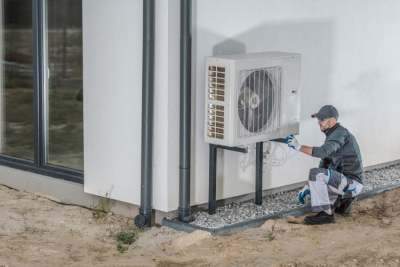Getting a heat pump is a big investment, which will save a lot of energy. Switching homes from gas boilers to heat pumps is set to play a significant role in meeting the UK’s targets to reduce emissions, as well as saving home energy costs in the long run.
This guide to environmentally friendly heat pumps explains the basics of how heat pumps work and gives a rough guide to heat pump costs. It discusses how heat pumps compare to gas boilers in terms of emissions and efficiency, and what progress the UK is making in terms of acceptance and installations.
Who's in the guide to heat pumps?
We cover 21 manufacturers of heat pumps (with a total of 23 brands) in this guide, revealing how the different companies score for their tax conduct, directors’ pay, treatment of workers in their supply chain, and climate reporting.
Most of the heat pump brands make air and ground source heat pumps. We have specified later in the guide who makes what, with one brand making hybrid heat pumps.
This guide covers more well-known manufacturers such as Baxi, Vaillant, Viessmann, and Worcester Bosch, along with other brands like Daikin, Grant, Kensa and Nibe, some European brands like Aira and big names like Mitsubishi and Samsung.
With overall ethical scores ranging from 5 to almost 60 (out of 100), there's scope to find a more ethical brand of heat pump.
How do heat pumps work?
Technologically, heat pumps are like fridges in reverse. Like a fridge, they use a refrigerant, which is a liquid that can absorb heat and then transfer it. But, instead of taking the heat from inside and transferring it outside, they can take heat from outside – either from the air or from the ground, even when it feels cold – and transfer it into your house.
Heat pumps are astoundingly efficient, delivering about three units of heat for each unit of electricity needed to run them.
If the outside is colder, they have to work harder but are still very efficient. As heat pumps generally heat water to a lower temperature than a gas boiler (though higher-temperature pumps now exist), the idea is to use them for longer periods, and have more surface area to distribute the heat, such as triple panel radiators, or underfloor heating.
The main types of heat pump are air source (air to water), ground source, and hybrid, which all heat water.




